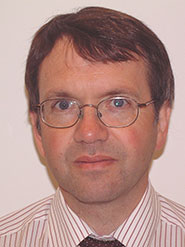Bristol’s Centre for Communications Research played host to more than 100 researchers, from both academia and industry, for the fifth scientific meeting of the European Co-operation in Science and Technology (COST) Action IC1004. Entitled Co-operative Radio Communications for Green Smart Environments, Action IC1004 is addressing research issues in the field of co-operative radio communications to make wireless connectivity more efficient as well as expanding the range of applications to make our society safer and more caring for the environment.
During the three-day meeting, which took place 24-26 September 2012, delegates presented some 80 technical documents describing state-of-the-art research in the field of energy and spectrum-efficient wireless communications, with a strong emphasis on Car-to-Car communications for vehicle safety and novel applications in health care.
Among the five invited presentations was the keynote address from Professor Niu from Tsinghua University in China on Globally Resource-Optimised Energy-Efficient Networks (GREEN). His talk highlighted the synergy between research undertaken in China and the Green Radio project funded by the Engineering and Physical Sciences Research Council (EPSRC) and industry through the Mobile VCE.
Professor Mark Beach, Professor of Radio Systems Engineering in Bristol’s Department of Electrical & Electronic Engineering, who is the UK National Representative for COST IC1004, said: ‘This COST action provides an excellent forum for discussing results direct from the laboratory with experts in the field of wireless communications from 35 countries, including Canada, China, Colombia, Israel, Japan and USA. This helps refine our observations and understanding, offering a unique experience for our early stage career researchers. Funding is also available to support Short-Term Scientific Missions between COST partners and Bristol has recently welcomed PhD students from Vienna University of Technology (Austria) and University of Technology Ilmenau (Germany).’
